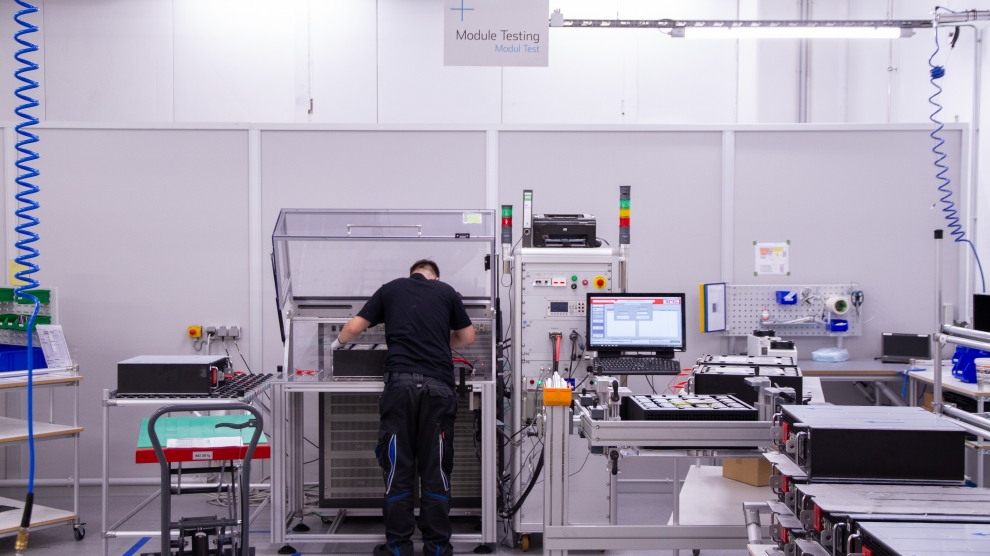Europe moves a step closer to creating a transformative tech champion.
Estonian energy storage technology maker Skeleton Technologies has raised 41.3 million euros from a group of investors in one of the largest cleantech investment rounds in Europe this year.
Tesla-rival Skeleton is the largest European manufacturer of ultracapacitor-based energy storage, the technology that enables the batteries of electric vehicles to fuel cars for longer.
Last year, Tesla bought Skeleton’s rival Maxwell Technologies Inc for 218 million US dollars, seeking to produce batteries that hold more energy and last longer.
Skeleton said all its earlier investors – EIT InnoEnergy, FirstFloor Capital, MM Grupp and Harju Elekter – participated in the round, which included also early investors in European payments firm Adyen.
“The momentum for energy transition and decarbonisation of the economy is stronger than ever. I am proud to see that our investors strongly believe in our vision and we now have new world-class mix of industrial companies and experienced startup leadership behind us. Their experience will now help us scale and aggressively grow. We have the right products to capture a dominant market share in the ultracapacitor industry globally,” says Taavi Madiberk, CEO and co-founder of Skeleton Technologies.
This Series D financing brings Skeleton’s total funding to over 93 million euros since the company was founded in 2009. It builds on a strong year for the company, which has seen a tripling of its revenues, building on similar growth in 2019.
Skeleton develops and manufactures ultracapacitors and energy-storage systems, delivering high power, high energy, reliable and long-life storage solutions in the automotive, transportation, grid and industrial sectors. The company claims that its ultracapacitors have four times the power density of those produced by Tesla.
While Skeleton’s production base is located in Germany, its IT, electronics and electrical engineering are located in Tallinn, Estonia’s capital.
“The roadmap to zero emissions needs innovation and a mix of enabling technologies. Ultracapacitors are a key enabler for lowering emissions – we are not competing with lithium-ion batteries and hydrogen fuel cells; we are complementary in improving performance and lowering cost,” adds Mr Madiberk.
“The green transformation of Europe’s economy – from transportation to process industries – is unthinkable without innovative energy storage solutions. Therefore, it is of utmost strategic importance to help build European champions in this arena,” says Diego Pavia, CEO of EIT InnoEnergy, and early investor in the firm. “Skeleton, with its world-leading and broadly applicable ultracapacitor technology, has all it takes to become another one of those European champions, and we are proud to continue and extend our support for them.”
—
Unlike many news and information platforms, Emerging Europe is free to read, and always will be. There is no paywall here. We are independent, not affiliated with nor representing any political party or business organisation. We want the very best for emerging Europe, nothing more, nothing less. Your support will help us continue to spread the word about this amazing region.
You can contribute here. Thank you.







[…] Tesla-rival Skeleton is the largest European manufacturer of ultracapacitor-based energy storage, the technology that enables the batteries of electric … View full source […]